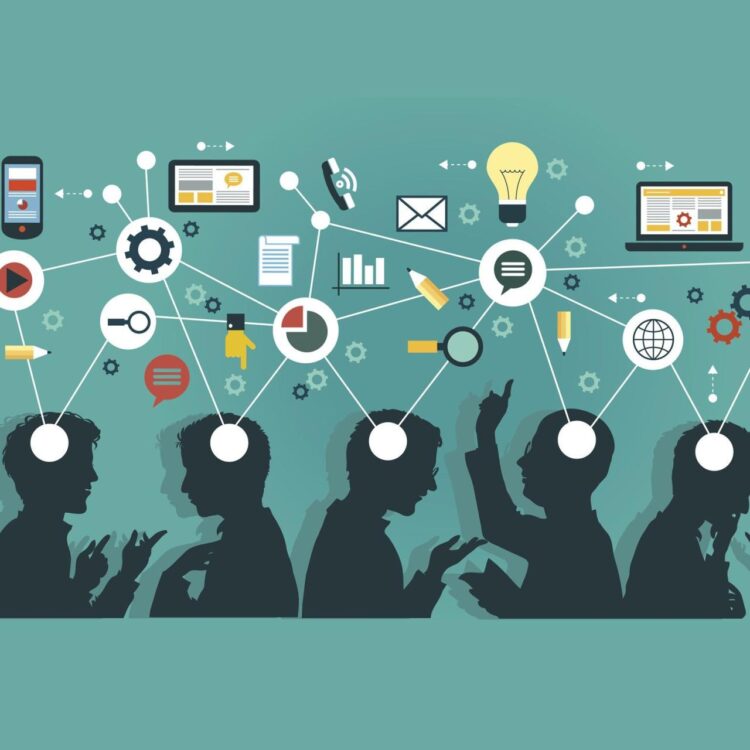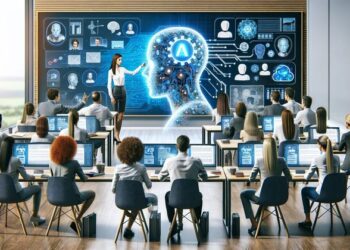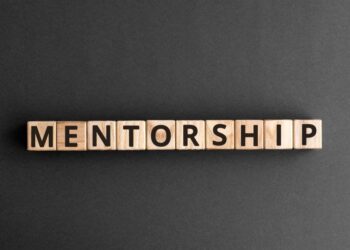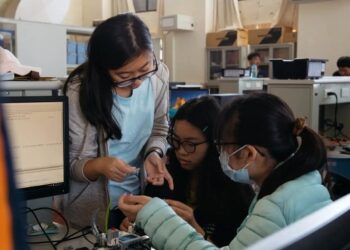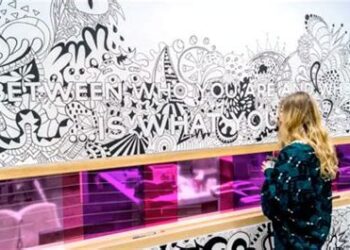In a world that no longer runs on a predictable schedule, the traditional concept of education has been rendered obsolete. The long-held model—a period of intense learning in youth, followed by a 40-year career applying that static knowledge—has fractured beyond repair. We have entered a new era, one defined by relentless change, where the skills that guarantee your relevance today could be worthless tomorrow. In this dynamic landscape, learning is not a phase; it is a fundamental, continuous process. Lifelong learning is no longer a quaint hobby for the intellectually curious; it has become the essential survival skill for the 21st-century professional.
Think of your knowledge base like the software on your computer. For decades, you could “install” an education and it would run effectively for your entire career. Now, the operating system of the global economy is updated constantly with new technologies, methodologies, and market demands. To fail to update your own skills is to choose to become incompatible with the future. This isn’t about fear-mongering; it’s about empowerment. The commitment to being a lifelong learner is the single most powerful investment you can make in your professional security, your personal growth, and your ability to not just survive, but thrive amidst uncertainty.
This guide is a blueprint for embracing the mindset and the mechanics of continuous learning. We will explore the undeniable forces driving this global shift, deconstruct the psychological foundation required to become an effective learner, and provide a practical, step-by-step framework for building your own personal engine of growth. Forget what you think you know about education. The classroom is now everywhere, the curriculum is your curiosity, and the final exam is your ability to adapt and succeed in a world that never stops changing.
The Unstoppable Forces Demanding Continuous Learning
The shift towards lifelong learning isn’t happening in a vacuum. It is a direct response to a convergence of powerful global trends that are fundamentally reshaping our economic and social structures. Understanding these drivers is the first step to appreciating the urgency and opportunity at hand.
A. The Acceleration of Technological Change: Moore’s Law, the observation that the number of transistors on a microchip doubles about every two years, has become a metaphor for the exponential pace of technological advancement. Fields like Artificial Intelligence (AI), machine learning, automation, and data science are not just creating new industries; they are fundamentally altering existing ones. This means that technical skills have a rapidly decreasing “half-life.” The coding language that is in high demand today might be a niche skill in five years. This relentless cycle of innovation demands a constant process of upskilling and reskilling simply to stay current.
B. The Evolving Job Market and the Half-Life of Skills: The World Economic Forum has repeatedly highlighted that a significant percentage of the jobs that will exist in the next decade have not yet been invented. Conversely, many current jobs, especially those based on repetitive tasks, are at high risk of automation. The “safe” career path has vanished. The new security comes not from the job you have, but from your ability to acquire the skills needed for the next one. Your value in the marketplace is directly tied to your capacity to learn, unlearn, and relearn.
C. Increased Longevity and the 100-Year Life: With advancements in healthcare and quality of life, people are living and working longer than ever before. A career may now span 50 or even 60 years. It is unrealistic to expect that the education received at age 20 will remain sufficient to sustain a career into one’s 70s. The modern career will be a series of sprints, pivots, and reinventions. Lifelong learning is the mechanism that enables these transitions, allowing individuals to launch second or even third careers in entirely new fields.
D. The Democratization of Knowledge: The barriers to learning have collapsed. High-quality education is no longer confined to the hallowed halls of universities. Platforms like Coursera, edX, Khan Academy, and countless others offer courses from the world’s top institutions, often for free or at a low cost. You can learn from Nobel laureates through podcasts, master complex skills through YouTube tutorials, and access a global library of books on your phone. The question is no longer about access; it is about the discipline and motivation to leverage these incredible resources.
E. The Neurological Benefits of Learning: The old adage “you can’t teach an old dog new tricks” has been thoroughly debunked by neuroscience. The concept of neuroplasticity confirms that the human brain remains remarkably adaptable throughout our lives. Engaging in new and challenging learning activities creates new neural pathways, strengthening cognitive function, improving memory, and potentially staving off age-related mental decline. In essence, learning is not just good for your career; it’s exercise for your brain.
The Foundation: Cultivating a Growth Mindset
Before you can build a practical learning plan, you must first construct the psychological foundation upon which it will stand. This foundation is what Stanford University psychologist Carol Dweck calls a “Growth Mindset.”
A Fixed Mindset assumes that our intelligence, talents, and abilities are static, inborn traits. People with a fixed mindset avoid challenges for fear of failure, give up easily when faced with obstacles, and view effort as a sign of weakness. They believe that if you have to try hard, you must not be a “natural.”
A Growth Mindset, in contrast, thrives on challenge and sees failure not as evidence of unintelligence but as a springboard for growth and for stretching our existing abilities. People with a growth mindset understand that their talents and abilities can be developed through dedication, hard work, and strategic effort. They believe that anyone can learn and improve. Embracing a growth mindset is the non-negotiable first step. It transforms the daunting task of “keeping up” into an exciting journey of becoming more capable.
How to Build Your Personal Lifelong Learning Engine
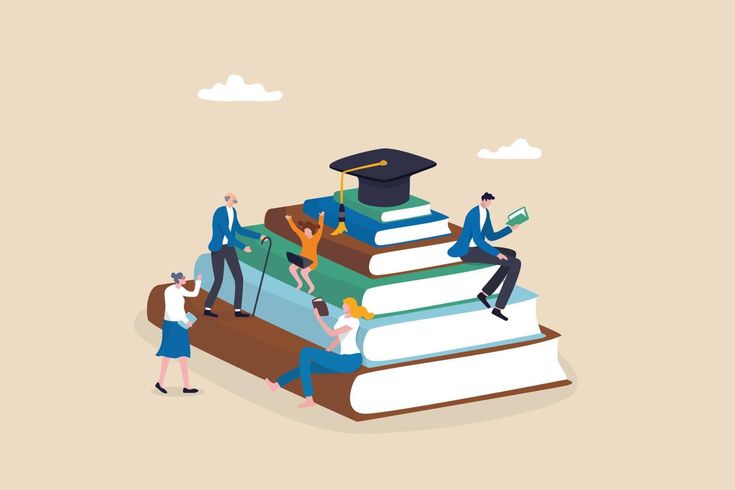
Becoming a lifelong learner is not a passive activity; it requires a deliberate and structured approach. Here is a practical framework for creating your own sustainable system for continuous growth.
A. Conduct a Personal Skills Audit: You cannot chart a course without knowing your starting position. Take time for honest self-reflection. What are your current strengths? Where are your knowledge gaps? What skills are becoming more important in your industry? What are you genuinely curious about? Use a simple document to list out your “Current Skills,” “Skills to Improve,” and “Skills to Acquire.”
B. Set Clear and Specific Learning Goals: Vague goals like “learn more about AI” are destined to fail. Use a framework like SMART (Specific, Measurable, Achievable, Relevant, Time-bound) to define your objectives. For example: “Complete the ‘Google Data Analytics Professional Certificate’ on Coursera within the next 6 months to develop the foundational skills needed to transition into a data-focused role.” This goal is specific, measurable, and has a clear timeline and purpose.
C. Schedule Your Learning: One of the biggest barriers to learning is the belief that “I don’t have time.” The solution is to treat learning with the same respect you treat a work meeting or a doctor’s appointment. Schedule it. Block out specific times in your calendar each week dedicated solely to learning. This could be 30 minutes every morning, your lunch break twice a week, or a larger block on the weekend. This practice, known as time-blocking, turns your intention into a commitment.
D. Diversify Your Learning Methods: A robust learning diet includes a variety of formats to keep you engaged and cater to different types of knowledge acquisition.
- Formal Learning: This includes traditional courses, degrees, and certifications that provide structured knowledge and credentials.
- Informal Learning: This is the vast world of self-directed learning. It includes reading books, listening to educational podcasts, watching documentaries, and taking non-credentialed online courses.
- Social & Peer Learning: This involves learning from others. Find a mentor, join a professional community or a mastermind group, or simply have insightful conversations with colleagues.
- Experiential Learning: This is learning by doing. The most powerful way to solidify new knowledge is to apply it. Start a side project, volunteer for a task at work that stretches your abilities, or build something using your new skills.
E. Embrace the Power of “Just-in-Time” Learning: While foundational knowledge is important, you don’t need to learn everything at once. Get comfortable with “just-in-time” learning, where you learn a specific skill precisely when you need it for a project or task. This approach is highly efficient and ensures that the knowledge is immediately applied and retained.
F. Teach What You Learn: One of the most effective ways to deepen your understanding of a topic is to explain it to someone else. Write a blog post, create a short presentation for your team, or simply explain a new concept to a friend. The act of teaching forces you to clarify your own thinking and exposes any gaps in your knowledge.
Lifelong Learning: A Corporate Imperative

The responsibility for lifelong learning doesn’t just rest on the individual. In the modern economy, organizations that fail to cultivate a culture of continuous learning are setting themselves up for obsolescence.
Companies that actively invest in employee development see profound benefits. They experience higher rates of innovation, as employees are equipped with the latest skills and knowledge. They see improved employee engagement and retention, as team members feel valued and see a clear path for growth within the company. Furthermore, a learning culture creates a more agile and resilient workforce, capable of adapting quickly to market shifts and technological disruptions. Fostering this culture involves providing access to learning resources, giving employees time to learn, and, most importantly, having leaders who model the behavior of a dedicated lifelong learner.
In conclusion, the journey of learning is now infinite. The diploma is no longer a finish line; it is merely a single milestone on a path that stretches for a lifetime. Embracing this reality is not a burden but an incredible opportunity—an invitation to remain curious, to become more capable, and to build a career and a life that is resilient, fulfilling, and endlessly interesting. The tools are at your fingertips, the knowledge is accessible, and the time is now. Your future self is waiting to see what you will learn next.

